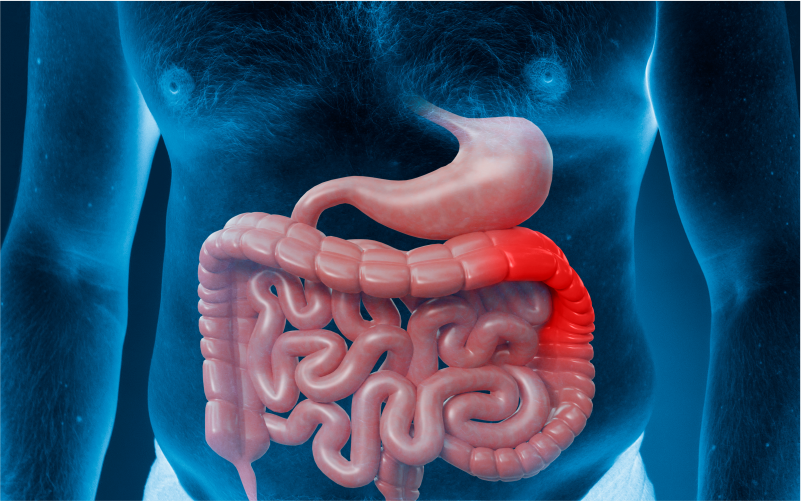Colorectal cancer
Colorectal cancer is a type of cancer that begins in the colon or rectum, which are parts of the digestive system. It usually develops from precancerous polyps that form on the inner lining of the colon or rectum. Colorectal cancer is one of the most common types of cancer, but it is also highly treatable when detected early.
Risk Factors
Several factors may increase the risk of developing colorectal cancer:
Age: Risk increases with age, particularly after 50.
Family history: Individuals with close relatives who have had colorectal cancer are at a higher risk.

Personal history: Having a history of colorectal polyps or inflammatory bowel diseases.
Lifestyle factors: Lack of physical activity, a diet high in red or processed meats, smoking, and excessive alcohol consumption.
Symptoms
Early stages of colorectal cancer may not show symptoms, but as the disease progresses, symptoms may include:
- Changes in bowel habits
- Blood in the stool
- Abdominal discomfort or pain
- Unexplained weight loss
- Fatigue
Diagnosis
Colonoscopy: A procedure to examine the inside of the colon and rectum.
Biopsy: Removal of a small piece of tissue for examination.
Blood tests: Checking for certain markers associated with colorectal cancer.
Stages
Colorectal cancer is staged based on how far it has spread. Stages range from 0 (in situ, confined to the inner lining) to IV (spread to distant organs).
Treatment
Treatment options depend on the stage and location of the cancer. Common treatments include:
Surgery: Removal of the tumor or affected portion of the colon or rectum.
Chemotherapy: Medications to kill cancer cells or stop their growth.
Radiation therapy: Using high-energy rays to target and kill cancer cells.
Lifestyle Changes
Adopting a healthy lifestyle can help prevent colorectal cancer and improve outcomes. This includes:
- Eating a balanced diet rich in fruits, vegetables, and whole grains.
- Regular physical activity.
- Limiting red and processed meat consumption.
- Avoiding tobacco and moderating alcohol intake.
Prevention and Screening
Prevention strategies include:
- Regular screening for early detection.
- Lifestyle modifications.
- Genetic counseling for those with a family history.
Conclusion
Colorectal cancer is a significant health concern, but with early detection and appropriate treatment, the prognosis can be favorable. Regular screenings, a healthy lifestyle, and awareness of risk factors are essential for prevention and early intervention. If you have concerns or are at risk, consult with a healthcare professional for personalized advice.







